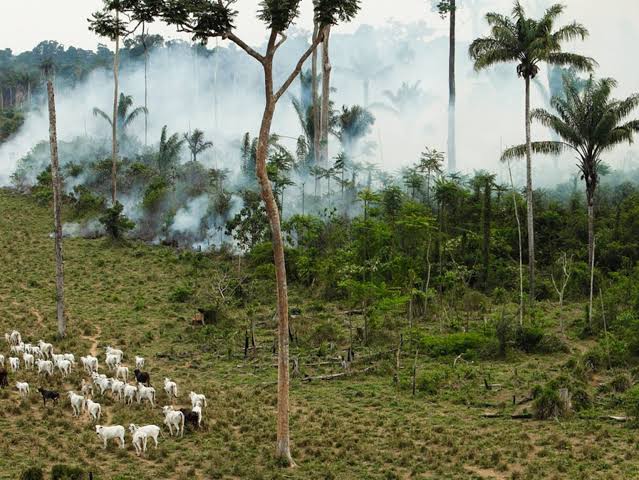Brazil has been accused of using what has been described as a carbon accounting trick to cover for weakened ambition in its updated climate plan.
Under the plan which was submitted to the UN last week, Brazil pledged to cut emissions by 50% between 2005 and 2030 – up from 43% previously.
While the document describes the plan as “one of the most ambitious in the world”, a revision to the 2005 baseline means the updated plan allows higher emissions in 2030 than Brazil’s first Paris pledge.
The difference is equivalent to the annual emissions of Colombia, the Talanoa Institute calculates.
Read also: After IPCC report, scientists stage worldwide climate change protests
In his reaction, Caio Borges, of Brazil’s Climate and Society Institute, said that this “is against the spirit of the Paris Agreement.
Recall that under the 2015 Paris deal and last year’s Glasgow Pact, countries were expected to progressively strengthen their climate targets.
Brazil’s environment minister Joaquim Leite had announced the 50% target during Cop26 climate talks last November while a document confirming this was submitted to the UN following a visit by Cop26 president Alok Sharma at the end of March.
Brazil has been under pressure to step up its climate plan after a first update to its 2030 target in December 2020 effectively weakened the country’s ambition.
The Brazilian Climate Observatory, a coalition of NGOs, in a statement said that the new target is a failed attempt by the Bolsonaro administration to fix the mess.
While it increases the nominal goal to 50% of emissions cuts, the plan uses the most recent and accurate emissions inventory for 2005, which is lower than the one used in 2020 but higher than the one in 2015.
Story was adapted from Climate Home News.
